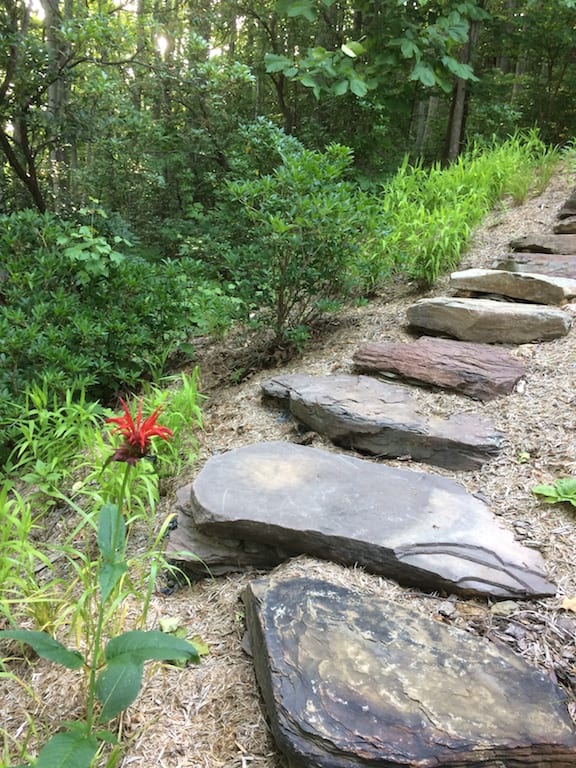The instructor’s house nestled on a woodsy hill overlooking an expanse of lawn. Eight students gathered in her cozy family room, and she opened with an introduction game. Names and details changed—except mine.
“Say your first name and something you like to do,” our instructor said, “whatever pops into your head first—other than writing.” She started the game: “My name is Linda, and I like to play bridge.” She pointed to another person in the circle.
“My name is Janie, and I like to knit,” she said, pointing to the next person. In my head, I rehearsed each person’s spoken information while observing her visual features. Connections.
“My name is Barbara, and I like to golf.” Barbara pointed to me.
“My name is Carole, and I like to weed.”
Weed? As a kid, my weeding looked more like foot-dragging, lethargy, malingering. Now I weed almost every morning—and look forward to it.
I’ve written about weeding a few times—this one about weeds masquerading like Wisdom and Folly. It’s a thought-piece, not improvised or spontaneous. So when I blurted, “I like to weed,” I observed something new about myself.
In an article in the February 2017 issue of The Writer’s Chronicle, Jill McCorkle wrote, “I have often told my students that if you walk around with your eyes and ears open, you can’t possibly live long enough to write all of the potential stories you will glimpse along the way.”
Weeding is walking around with my eyes and ears open, my nose and sense of touch, too. I observe where plants like to grow—both cultivated and volunteers—whether they are struggling or blooming, and when. Nearby rustling in the woods signals the presence of deer, a squirrel or some other creature. Drama? Fence lizards sun themselves on the rocks of the meadow path then dart onto a tree and disappear, camouflaged on the bark.
 “Aren’t you pretty,” I coo to the Bee Balm now in bloom. “No you don’t,” I fuss at invasive stilt grass. “Keep growing, little Fothergilla, you’ll be a good-sized bush some day.” I stroke the tender, dust-green leaves.
“Aren’t you pretty,” I coo to the Bee Balm now in bloom. “No you don’t,” I fuss at invasive stilt grass. “Keep growing, little Fothergilla, you’ll be a good-sized bush some day.” I stroke the tender, dust-green leaves.
Each morning offers new stories, depending on what I choose to observe. Observation is sensory overload, like sitting in a large cafeteria, trying to see all the people, listen to their conversations, smell everything, taste, and touch. I have to weed out most detail in order to attend to what makes a story. Which characters, setting, plot, conflict, and resolution? I ask.
Why do I like to weed? I love to observe nature’s spontaneity, improvisation, the blurting out. I love to nurture potential stories and cut others. To begin my day outside, observing God’s creation.
“My name is Bee Balm, and I like to grow tall.”



Everyone doesn’t have a meadow to play in. I would mention that all of our volunteers are not weeds, some are welcome guests eager to join the colorful chorus.
Ah, but there are “meadows” everywhere. And yes, many volunteers are welcome to sing in the choir. As long as they can carry a tune;-)
This changes my thinking about weeding. I have thought of it as onerous and rigid and destructive hah! Now I have a new sense of its possible beauty!
I think I hear a poem in the making;-)
LOL, maybe!
Your meadow path is beautiful!
Thanks – it’s ever prettier now.